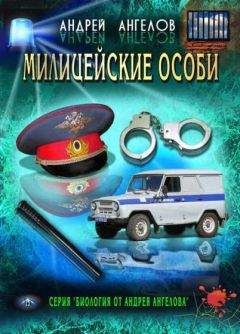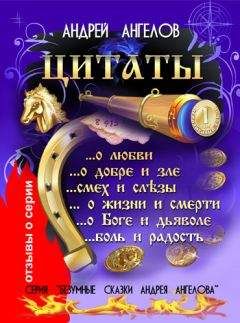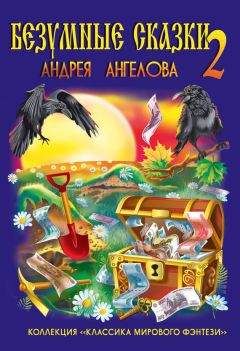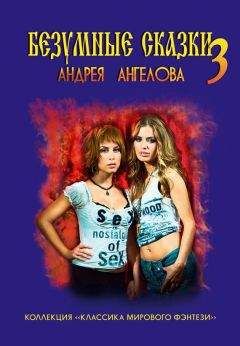Peake, Mervyn - 02 Gormenghast
And then he saw her seated on a log with her mother beside her. From their feet the land dipped gradually to the water and on this decline was gathered what was pleased to think itself the upper stratum of Gormenghast society. To right and left the ground swarmed with officials of every kind - and over Titus, and over them all were the spreading terraces of the trees.
Finding himself alone. Titus sat down on the purple chair and then, to make himself more comfortable, curled his feet under him, and rested his arm on the bolster-like arm. He lifted his eyes to the lake with its upside-down picture of all that was spread above it.
Fuchsia trembled as she sat beside her mother. She remembered how the chestnut woods had held back their secret until this moment, years ago, and how they would now throw out their startling characters. She turned her head to see whether she could catch her brother's eye, but he was staring straight ahead, and as she watched him his hand went to his mouth again and she saw him sit forward on the couch as rigidly as though he had been turned to stone.
For immediately ahead of-him, across the unblemished lake, figures as tall as the chestnut trees themselves were straddling out of the shadows, and to the verge of the opposite bank, where they stood, unbelievably. Before them, their liquescent stage lay spread. The reflections of their fantastically elongated bodies were already deep in the lake.
There were four of them, and they came out one after another from various parts of the forest. They appeared to take no notice of one another although they turned their heads to right and left. The movements of their bodies appeared stiff and exaggerated. but extraordinarily eloquent.
From the high masks that topped them, to the grass on which they balanced could not have measured less than thirty feet.
They were beings of another realm and the crowds that stared up at them from below had not only been shrivelled up into midgets, but were also made to appear grey and prosaic. For these four giants were in every way most beautiful and extraordinary. The woods behind them seemed darker than ever now, for these lofty spectres were tinted under the moon's rays with colours as sharp and barbaric as the plumage of tropical birds.
From one to another, Titus turned his gaze, unable to resist the movements of his eyes, although he longed to dwell on each one separately.
Upon their lofty shoulders they carried their heads like kings - abstracted and inscrutable. Their dignity was something that infused their slightest movement. In the stiff and measured raising of an arm the very humus appeared to be drawn out of the soil below. The tilting of their faces to the sky made the sky naked - made the moon guilty.
The group had stalked out of that part of the forest that faced Titus across the lake. Their four heads were very different. That of the most northerly was crowned with a high conical hat like a dunce's, under which a great white head resembling a lion's turned slowly to left and right, upon the shoulders that supported it. The eyes, perfectly circular, were painted the purest emerald green and when the head was raised they shone to the moon.
But its mane was its glory. From close above the eyes, and from the sides and back of the head it billowed forth luxuriantly and fell as far as the waist in undulations of imperial purple. From the waist downwards - a twenty foot drop to the feet of the stilts - a prodigious skirt descended like a cascade, weighted down by its own length of material. It was quite black, as were those of the other three. This mutual darkness of the lower two thirds of their bodies gave an illusory effect to their upper parts. The skirts could be seen, and their reflections could be seen, but with nothing like the same clarity. It was, at times, almost as though their coloured 'heights' were floating. The arms emerged from halfway down the mane. In either hand the Lion held a dagger.
Next to this figure with its purple mane, stood one as far removed as the Lion from the natural, but more sinister in that the wolfish character of the head was not redeemed by either a noble cast of feature, or lightened by the charade-like nature of the long white dunce's hat.
This vulpine monster was undeniably wicked - but so decoratively wicked!
The head was crimson, and the cocked and pointed ears were deepest azure. This azure was repeated in the circles that were scattered over the grey hide of the upper body. In either hand was an enormous cardboard bottle of poison. As with the Lion the black skirt fell like a wall of darkness.
Even now as it stood in what might be thought of as the 'wings' for they had not set foot in the watery stage, their every movement was something awesome. For the Wolf to lift its poison-bottle was for a shudder to run through the swarming populace; for the Lion to shake its mane was for the lake to be circled with gooseflesh.
Next to the Wolf, and separated by half an acre of upturned heads was the Horse - a horse unlike any other travesty of that noble animal that had ever been concocted - and yet it was more a horse than anything else. It was monstrous, in its own way, with an expression of such fatuous melancholy that Titus could neither laugh nor cry for neither expression was true to what he felt.
Upon its head, this giantess wore an enormous basket-work hat whose brim cast a circular shadow upon the moonlit water far beneath. Long powder blue ribbons fell ludicrously from the crown of the hat and clustered about the hairy shoulder ten feet below. All about the lower part of the crown the hat was decorated with grass and livid lilies.
From beneath all this resplendence the loose-lipped head of the Horse protruded with baleful idiocy. Like the Lion, its long maudlin head was white, but red circles were painted on either side between the eyes and the curve of the jaws. The neck was long and absurdly supple, with a stubby fringe of orange hair along the spine.
It was clothed in an apple-green smock from under which the long skirt descended, hiding the tall and perilous stilts that protruded for no more than six inches beneath the black hem. In one hand the Horse carried a parasol and in the other a book of poems. From time to time the Horse would slowly turn its head and incline it, with a sort of sad and smirking deference, to the Lamb upon its left.
This Lamb, a little less in height than its companions, for all its towering stature, was a mass of pale golden curls. Its expression was one of unspeakable sanctity. However it moved its head - whatever the angle, whether it scanned the heavens in search of some beatific vision, or lowered its face as though to muse upon its own unspotted breast - there was no escape from its purity. Between its ears, and set upon the golden curls was a silver crown. The swathes of a grey shawl were drawn demurely over the shoulders, across the golden breast and fell in sculpturesque folds of some length, so that there was less to be seen of the inevitable skirt. It carried nothing in its hands for they were clasped upon its heart.
These four, with their heads as big as doors, yet appearing almost small in proportion to the awe-inspiring loftiness of the bodies, these four had not stood at the margin of the reflecting lake for more than a minute before, with startling unanimity of purpose, they set forth upon the waters.
Titus, crying with excitement, gripped the rotten upholstery of the chair on either side, his fingers working their way into the ancient horse-hair.
The Four ahead of him appeared to be moving upon the surface across the lake. Their strange, spidery strides took them far from the shore, but the hem of their skirts were still dry! Titus could in no way, understand it, until suddenly he realized that in spite of the clear reflections that seemed to plunge into fathomless water, the great lake was in reality but a few inches deep. It was a film.
For a moment he was disappointed. There is danger in deep water, and danger is more real than beauty in a boy's mind. But this disappointment was immediately forgotten for there could have been nothing of all this had the lake not been the merest glaze of water.
The masque of the Four upon the lake was designed, many hundreds of years ago, for this setting among the nocturnal chestnuts. The gestures of the Lion, grandiloquent, absurd yet impressive - the shaking of its purple mane, from which tremendous operation the other three invariably drew back - the terrible, side-long progress of the Wolf with the poison bottle as he manoeuvred himself ever nearer the golden lamb, and the outlandish gait of the Horse with its garnished hat, as it straddled from one end of the lake to the other, reading from its book of poems, while with its parasol it beat time in upper air to the rhythm of the verses - all this was a formula as ancient as the walls of the castle itself.
And all the while this masked drama, played upon stilts as tall as trees and upon a lake that reflected not only the progress of the performers, but the moon over whose liquid image the monstrous Horse would invariably stumble as though he had been tripped - all the while the silence continued unbroken. For although a strong strain of the ridiculous ran through everything, this was not the dominant impression. When the Horse-creature tripped or waved its parasol; when the Wolf was thwarted and its lower jaw fell open like a drawbridge; when the Lamb cast its eyes to the moon, only to be distracted in the throes of its sanctity by the whisking of the lion's mane - when these things happened there was no laughter but only a kind of relief, for the grandeur of the spectacle, and the godlike rhythms of each sequence were of such a nature that there were few present who were not affected as by some painful memory of childhood.
At last, the time-hallowed ritual drew to its end, and the lofty creatures stepped from the shallow lake, and turning before they disappeared into the deep woods, bowed across the shallows to Titus, as might the gods of Poetry and Battle bow to one another, as equals across enchanted water.
The Four, as they departed, took the silence with them. The rest of the night was by way of being a release from perfection, and was given over to every kind of scattered activity.
Between the bonfires that surrounded the lake and warmed the air above the chestnut forest, fresh fires were being lit, and under the lake-ward boughs hampers and baskets of provisions were being unpacked.
The Countess of Groan, who had remained throughout the masque as immovable as the log on which she sat, now turned her head over her shoulder.
But Titus was no longer on the platform, nor was Fuchsia at her side.
She rose from the log, the traditional place of honour, and moved abstractedly down to the lake's edge between lines of functionaries, who on seeing her rise knew that they were now free for the rest of the night to disport themselves as they wished.
Against the shimmering lake her massive form loomed darkly save for the moonlight on her shoulders and her dark red hair.
She gazed about her but seemed to be unaware of the crowds that thronged the water's edge.
A giant picnic was piecing itself together as the fish and fruit and loaves and pies were laid out beneath the trees, and it was not long before the lake was surrounded by an unbroken feast.
And while all these preparations were going on, shrill packs of urchins raced through the chestnut woods, swarmed among the branches, or streaming out of the trees, pranced or cart-wheeled to the centre of the lake, their reflections flying beneath them, and the film of water spouting from their feet. And when a pack would meet its rival pack, then hand to hand, a hundred watery combats would churn the shallows, as scattered over the aqueous arena the children grappled, the moon-light sliding on their slippery limbs.
And Titus watching longed with his whole being to be anonymous - to be lost within the core of such a breed - to be able to live and run and fight and laugh and if need be, cry, on his own. For to be one of those wild children would have been to be 'alone' among companions. As the Earl of Gormenghast he could never be alone. He could only be lonely. Even to lose himself was to be lost with that other child, that symbol, that phantom, the seventy-seventh Earl of Gormenghast who hovered at his elbow.
Fuchsia had signalled him to jump from the platform, and together they had raced into the chestnut woods immediately behind, and for a moment or two, in the darkness, they had held each other in the deep shadows of the trees and had heard one another's hearts beating.
'It was wicked of me,' said Fuchsia at last, 'and dangerous. We are supposed to have our midnight supper at the long table, with mother. And we must go back soon.'
'You can if you like,' said Titus, who was trembling with a deep hatred of his status. 'But I'm leaving.'
'Leaving?'
'Leaving for ever,' said Titus. 'For ever and ever. I am going into the wild, like... Flay... and like that...'
But he could think of no way to describe that wisp of a creature who had floated through a forest of gold oaks.
'You can't do that,' said Fuchsia. 'You would die and I wouldn't let you.'
'You couldn't stop me,' cried Titus. 'Nobody could stop me -' and he began to tear off the long grey tunic, as though it were in his path.
But Fuchsia, her lips trembling, held his arms to his sides. 'No! no!' she whispered passionately. 'Not now, Titus. You can't...'
But with a jerk he freed himself, but immediately tripped in the darkness and fell upon his face. When he raised himself, and saw his sister above him he pulled her down, so that she knelt at his side. In the distance they could hear the cries of the children by the lake, and then, suddenly, the harsh ringing of a bell.
'That is for supper,' whispered Fuchsia, at last, for she had waited in vain for Titus to speak, 'and after supper we will go along the shore together and see the cannon.'
Titus was crying. The long day he had spent alone, the lateness of the hour, the excitement, the sense of his essential isolation - all these things had worked together to weaken him. But he nodded. Whether Fuchsia saw his silent answer to her question or not, she made no further remark, but lifting him from the ground, she dried his eyes with the loose sleeve of her dress.
Together they picked their way to the edge of the wood, and there were the bonfires again and the crowds and the lake with the chestnut trees beyond, and there was the platform where he had sat alone, and there was their mother at the long table with her elbows on the moonlit linen, and her chin in her hands, while before her, and seemingly unnoticed, for her gaze was fixed upon the distant hills, the customary banquet lay spread in all its splendour, a rich and crowded masterpiece, the gold plate of the Groans burning with a slow and mellow fire and the crimson goblets smouldering at the moon.




